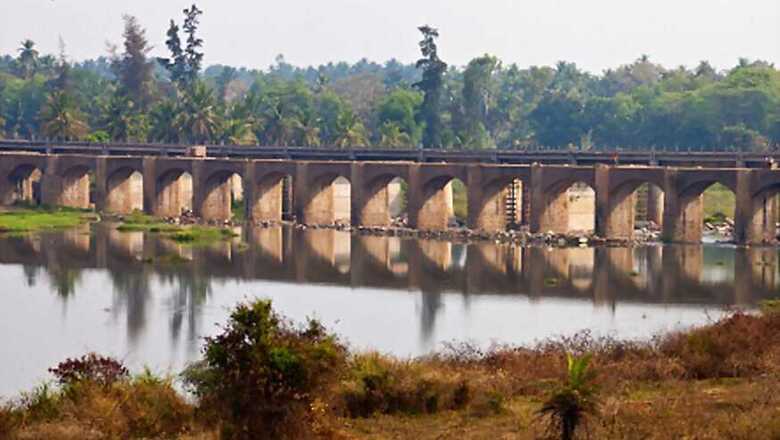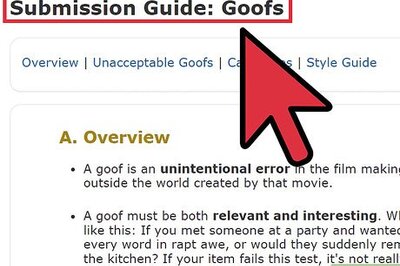
views
If at the end of the day, the Tamil Nadu voter were to feel that ‘promising’ politicians in actors Rajinikanth and Kamal Haasan have not said enough on the Supreme Court’s Friday verdict in the ‘Cauvery water dispute’ with neighbouring Karnataka, there is a reason.
Cauvery is no more an irrigation-related issue in the eyes of the average Tamil, nor it any more pertains to the conventional politics of one-upmanship between the two Dravidian majors, the ruling AIADMK and the parent DMK, alternating in the seat of power ever since the dispute hit the State in 1974.
It is not even just a legal issue for constant adjudication in and by the Supreme Court of India. Instead, it has become an emotional issue for every Tamil in the country and outside, independent of whether he is still even an Indian citizen, or a near-permanent resident overseas, or a direct beneficiary of Cauvery irrigation in Tamil Nadu’s delta region.
Whether living in Mumbai or Munich, Delhi or DC, Tamils continue to celebrate ‘Aadi Perukku’, on the 18th day of the Tamil month of Aadi (July-August), when fresh waters from the Cauvery flowed down the Thanjavur heart-land, following the first rains of the season flowed down from Thalacauvery, now in Karnataka.
Long after Cauvery became a political issue and legal dispute, long after they had migrated to far-off lands, Tamil still continue to celebrate the festivities with near-equal fervour, even in years they knew not a drop of water would flow down the river. Such has been the pull of the Cauvery in the average Tamil mind-set over generations and centuries, compared even to other rivers serving an equitable, if not equal purpose, in the daily life of local populations that they have been feeding likewise.
Denial of identity
It is however in the last decade or so alone that the Cauvery has become an inseparable emotional issue for the average Tamil in the State, as Hindi used to be in the sixties, and the Sri Lankan ethnic issue and Jallikattu have become since. Even during the previous years, when the Tamil film industry joined in big numbers and staged protests, or when Tamils were attacked in Karnataka whenever the issue returned to the centre stage, had such a strong traction become visible. It was yet mostly centred on the denial of irrigation water, or the political parties ruling the State and the Centre, playing one-upmanship – but not as a ‘denial’ of Tamils’ rights, Tamils very existence and social identity, as it is now!
To the new-generation youth, who still look for substance beyond words, and even gets easily distracted from the traditional verbose attending on Dravidian political statements and speeches, Cauvery-like issues have also become identifiable causes on which they readily perceive a real ‘denial’ of Tamil rights in and under the Indian Union. The question is not about the right and wrong of such perception, but about its existence and the increasingly deep-seated nature of such ‘denial’ sentiments. To the extent that successive Governments at the Centre, and even in the State, and other high constitutional institutions in the country, are seen as not doing enough to assuage their hurt and angst, deeper is their sense of expectations whenever a new political face appears on the scene/screen and seeks their mandate on issues that are closer, not to the speaker’s heart but of the larger masses.
Tweets, for starters
It is thus that when AIADMK Chief Minister Edappadi K Palaniswami issues a longish, 15-page statement, or DMK Leader of the Opposition, M K Stalin, beats him to it with a fairly detailed early statement on the Supreme Court, the Tamil voters, starting with their respective fan-cadres, waited for what Kamal or Rajini had to say. While Kamal’s tweet a couple of hours later, expressed his ‘shock’ at the SC verdict, Rajini was the last one in the line, and by late evening tweeted in plain words that the verdict had not done justice to the Tamil Nadu farmer, and urged the State Government to file a ‘review petition’ in the Supreme Court (even) after the three-Judge Bench under Chief Justice Dipak Misra had held that it would not entertain any further petitions on the dispute.
The present-day Tamil Nadu voter is happy with a tweet or two from their leaders on major issues with the result even veterans like Stalin from traditional political parties like the DMK have started adopting. But politics or even war-of-words is not about tweets alone. It is also not as if the voter is going to read every word of what the longish statements have to say, or the praise that two Dravidian majors apportion for themselves, or the blame they heap on the other, for not-doing-enough when they were in power, but they need a document to go back to, if and when they felt the need to verify and cross-check facts from fiction. To ‘em all, the tweets are just for starters, not enough to express their leaders’ position on any given issue.
Pleasantly surprised
It is not about what the DMK and the AIADMK, the BJP and the Congress have done for the Cauvery farmers, while in power in the State or at the Centre, respectively. If anything, the Tamil Nadu voter would have been pleasantly surprised at State BJP president Tamizhisai Soundararajan echoing the larger Tamil sentiments over the verdict when she and her party colleagues have been bending backwards to defend their national leadership and Prime Minister Narendra Modi, on all issues that impact on the State and its population.
Critics of the BJP and PM Modi, both in the print and visual media, had taken a dig at the party, when the Centre overnight turned turtle at the Supreme Court in October 2016, when then Attorney-General Mukul Rohatagi submitted that the courts could not adjudicate on the setting up of the Cauvery Monitoring Authority (CMA). While upholding the earlier orders passed for the Centre to set up the CMA, the Bench on Friday also chided the Union of India for arguing that only Parliament had authority in the matter.
The more the State BJP talks in defence of Tamil Nadu’s rights in the matter, the greater are the chances of they being asked to talk PM Modi and the Centre into intervening to restore the 14.5 tmcft of Cauvery waters that the SC had ‘taken away’ from the State’s Tribunal-adjudicated share and given away to Karnataka. Closer now that Karnataka Assembly polls are, better purportedly are the BJP’s chances there are, too, the Tamil Nadu critics of the BJP, see in it all a ‘political ploy’ in the Centre taking an ‘unconventional’ stand on the CMA issue. They would also be keenly watching the Centre’s next steps to implement the SC order on the institutions of the CMA.
Divergent positions
Strange are the ways of politics, it would seem. In Tamil Nadu’s long Dravidian politico-electoral history, without exchanging a word even through back channels, the AIADMK and DMK have taken divergent positions on key issues affecting the state and its population in such a way that no political space has been left thus far, for any third party or force to try create a vacuum and seek to fill it – or, seek to fill a vacuum that they are told existed, only for them to fill.
Such is the case now for Rajini and Haasan, who have taken a simultaneous but separate plunge into politics, or so they say they would do soon, with the launch of their respective political parties.
The prevailing political eco-system of the times too have helped them immensely, whether it was when giants like Karunanidhi (DMK), and MGR and Jayalalithaa (both AIADMK) straddled the political space, until the former fell seriously ill, and the latter two quit the scene. Thus, when Stalin is seeking to paint a picture of ending ‘competitive Dravidian politics’ of his father’s era, and wants not only party cadres but also the large chunk of ‘swing voters’ to believe him and believe in him, he volunteered to accompany Chief Minister EPS, when the latter wrote recently to Karnataka counterpart Siddaramaiah, to demand immediate release of Cauvery waters, if only to save standing crops in Tamil Nadu.
Not outrageous, but...
Possibly, Hassan did not know how to react, and Rajinikanth, who is from Karnataka with Marathi origins before he became Tamil cinema’s reigning super-star, did not react, either. If the was argued that the EPS’ letter to Siddaramaiah, which the latter promptly declined, citing lack of time, of all things, was aimed at seeking Rajini’s reaction as much, Stalin’s unilateral and unconditional offer, made it worse for the superstar, possibly. As political observers point out, Rajini could have gained if and if only he had tweeted when Siddaramaiah responded negatively to EPS’ request for time, and criticising the former, even remotely.
In his post-verdict reaction, Stalin, reflecting the new DMK avatar that he proposes to don still, suggested that Chief Minister EPS called an all-party meeting to discuss the issue and take common decisions, to which he should also invite farmers’ representatives. Neither Kamal, nor Rajini, tweeting long after Stalin’s studied statement, which also flowed instantly, had any ready proposal to offer the State Government. In politics, it has always been about timing. In the social media era, it is also about time.
Delays to study the issues as they erupt and decide on the next course, and yet come up with bland statements, would be seen only as the leader concerned being guarded and protective (of ‘self-interests’). If late, their statements should be remembered, even if delayed, it should not be verbose, yes, but they should at least be strong and path-breaking, even if not outrageous, as some would want it – but would not go down well with the new-generation voter, after all. The Cauvery water dispute is no different!
(The writer is Director, Chennai Chapter of the Observer Research Foundation, the multi-disciplinary Indian public-policy think-tank, headquartered in New Delhi. Email: [email protected])















Comments
0 comment